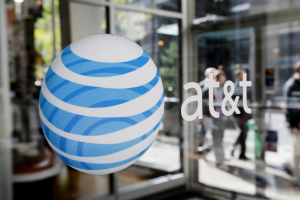As 5G sets out to become one of the latest trends in the technology curve, consumers have also shown their readiness to accept an age of communication characterized by remarkable speeds of up to 100 times faster than what is presently made available.
AT&T is the latest to join Verizon when it comes to working on 5G and begin its development during the second quarter of the year. The latter already began testing 5G last year.
Now, AT&T is set to work with Ericsson and Intel for lab testing and subsequently transfer to a field test in Texas where the company seeks to establish fixed points which can deliver 5G before the year ends.
Its field trials will be fundamental in "rapid and wide-scale adoption" of the technology, as pointed out by Arun Bansal, Ericsson's senior vice president and head of Business Unit Radio.
"5G will impact the entire mobile network - from devices to access and core to cloud - and open up exciting new IoT applications for consumers and industry, so Ericsson is enabling AT&T to move beyond 5G lab tests to gain a greater understanding of 5G's potential in their own network environments and markets," Bansal explained.
While 5G is more commonly known as the successor of 4G, an international consensus about its meaning is yet to be made. As the fifth generation of wireless technology, it is expected to bring on average speeds that are up to 50 times faster compared to the fastest 4G LTE connection available at present.
With extremely fast speeds, 5G will enable consumers and businesses to transition and move about into the cloud. Moreover, with less emphasis on local storage, devices with 5G connectivity are likely to be slimmer and handier than their predecessors.
5G technology is likely to make its way to home broadband first, then subsequently in data-only devices, such as tablets. Eventually, it will arrive in cell phones in 2019 or 2020.
Aside from smartphone data, AT&T has pointed out that 5G will be used for virtual reality, self-driving cars, robotics, smart cities and massive sensor networks.
The company also explained that it is depending greatly on network function virtualization and software-defined networking to cut down on the costs of delivering data and to sustain new applications more quickly.
As such, AT&T is attempting to get rid of the "traditional model [that] relied on complex and cumbersome hardware" in support for that "turn[s] routers, firewalls and other network equipment into virtual functions running on commodity hardware," as stated by the company.
"These technologies will be immersive, pervasive and responsive to customers," John Donovan, chief strategy officer and Group President, AT&T Technology and Operations, explained in an official statement. "5G will help make them a reality. 5G will reach its full potential because we will build it on a software-centric architecture that can adapt quickly to new demands and give customers more control of their network services."

















